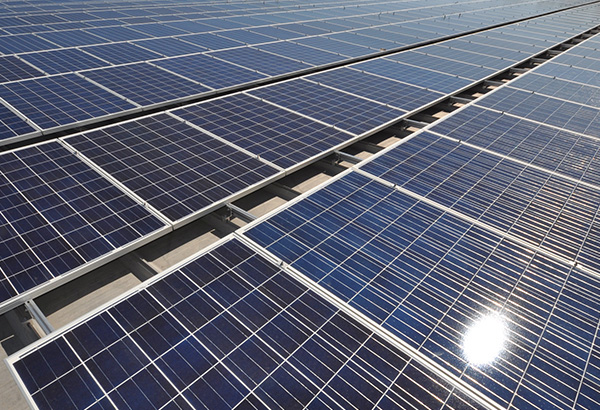By Danessa Rivera (The
Philippine Star) | Updated March 3, 2016 - 12:00am

EISSI, the joint venture of
Belgian solar project developer Enfinity N.V. and Filipino-owned mass housing
developer Imperial Homes Corp., incorporated lithium batteries in its solar
system package and made it available to the residential market outside of its
scope. Philstar.com/File
MANILA, Philippines –
Enfinity Imperial Solar Solutions Inc. (EISSI) introduced yesterday a solar
power system that will provide 24/7 electricity for the residential market.
EISSI, the joint venture of
Belgian solar project developer Enfinity N.V.and Filipino-owned mass housing
developer Imperial Homes Corp., incorporated lithium batteries in its solar
system package and made it available to the residential market outside of its
scope.
“With the abundance of
solar energy in the country, it is only imperative that we exploit the
opportunity to harness free energy. We hope this would pave the way for ending
homeowners’ dependence on grid power,”
EISSI president and CEO Jocelyn Sta. Ana said in a press briefing
yesterday.
The eSaver 3000 24/7 residential basic package includes a 1.5
kilowatt-peak (kWp) solar solution with a 2.9 kilowatt-hour (kWh) lithium
battery which has a longer life span and bigger capacity than traditional lead
acid batteries,
The company said its
residential solar solution is the first of its kind in the country.
“This is the first time
lithium batteries will be used in the solar system for the retail market,” Sta.
Ana noted.
Nickel and lead acid
batteries are the more commonly used energy storage for solar solutions, particularly
for off-grid renewable energy systems, and these are being phased out due to
cost and environmental issues.
A lithium battery can last
at least five years, extendable to 10 to 15 years with good battery management,
compared with a typical lead acid battery which usually lasts for two to three
years only.
“Lithium batteries are more
compact and would take a smaller space, thus homeowners need not worry about
aesthetics. They are also lighter and can be integrated in outdoor applications
and mounted in walls,” Sta. Ana said.
Apart from providing 24/7
electricity, she said the solar solution also works during power outages
because it is also a “emergency saver.”
“It works like a standby
generator, working during brownouts.”
The company said the solar
solution retails for at P300,000 but is being offered at an
introductory price of P295,000.
The energy generated by the
system may offset the homeowner’s electric bill by as much as P1,800 up to
P3,300 monthly, based on P10-12 per kwh rate.
The company said several
financial institutions have already expressed support in financing renewable
solutions for consumers.
Among them are Bank of
Philippine Islands, BPI Family Bank, BDO Unibank Inc., Landbank of the
Philippines, Pag-IBIG Fund and Producer’s Bank, which provide different funding
mechanisms on how the solar solution may be purchased, either through home improvement
loans, personal loans, credit card, and cash/deferred payment.

